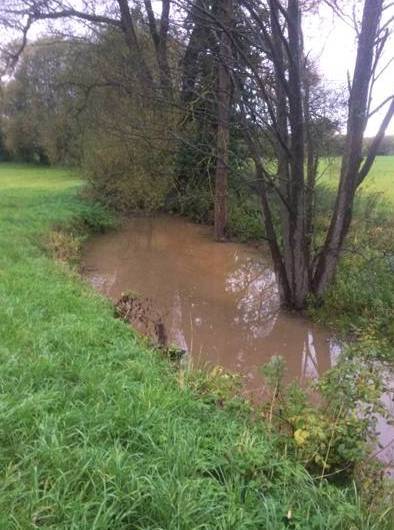TP6 Climate change in Bavaria: water quality and sustainable agriculture
AQUAKLIF_TP6
From 04/2018 to 07/2023Principal Investigator: Thomas Koellner
Staff: Bhumika Uniyal
What is it about?

After heavy rainfall in Bavaria's streams, the swept-in soil not only clogs the gravelly habitat of many aquatic animals, it also carries along large amounts of nutrients such as nitrogen and phosphorus, which were intended to fertilize meadows and farmland. Instead, these nutrients promote the growth of algae and aquatic plants in the stream - weeding and lack of oxygen at the river bottom are the consequences. With climate change, the problem is exacerbated in two ways: on the one hand, the nutrients applied to fields and meadows are more poorly absorbed by the plants in dry phases; on the other hand, more frequent heavy rains are likely to flood the fertilized soil.
What can be done to keep yields in agriculture as stable as possible in the future and to reduce the nutrient load in waters? In this subproject, climate forecasts for Bavaria are used to investigate how alternative agricultural production measures impact crop yields and nutrient loads in selected river basins.
...and as scientists would put it:
Increasing extreme events such as heat waves, drought and heavy rainfall as a result of global climate change pose a major challenge for the quality of water in agricultural regions in Bavaria. On the one hand, there can be significantly higher water pollution due to fertilizer discharge, on the other hand crop yields can also fluctuate more intensely. The aim of this subproject is to develop possible adaptation strategies through agricultural management measures in order to effectively counteract the effects of climate change on water quality (especially nitrogen and phosphorus loads) as well as on food production in Bavaria. The Soil and Water Assessment Tools (SWAT) aims to simulate a variety of management options for different climate change scenarios, such as greening measures (e.g. crop diversification, grassland management and Ecological Focus Areas), crop rotation systems and efficient fertilizer management, and to analyse their impact on ecosystem services, specifically nutrient retention and food production in selected Bavarian river basins. The model results are then used to derive potential combinations of measures that can most efficiently reduce nutrient loads into the water bodies and at the same time achieve stable food production for Bavarian agriculture.





